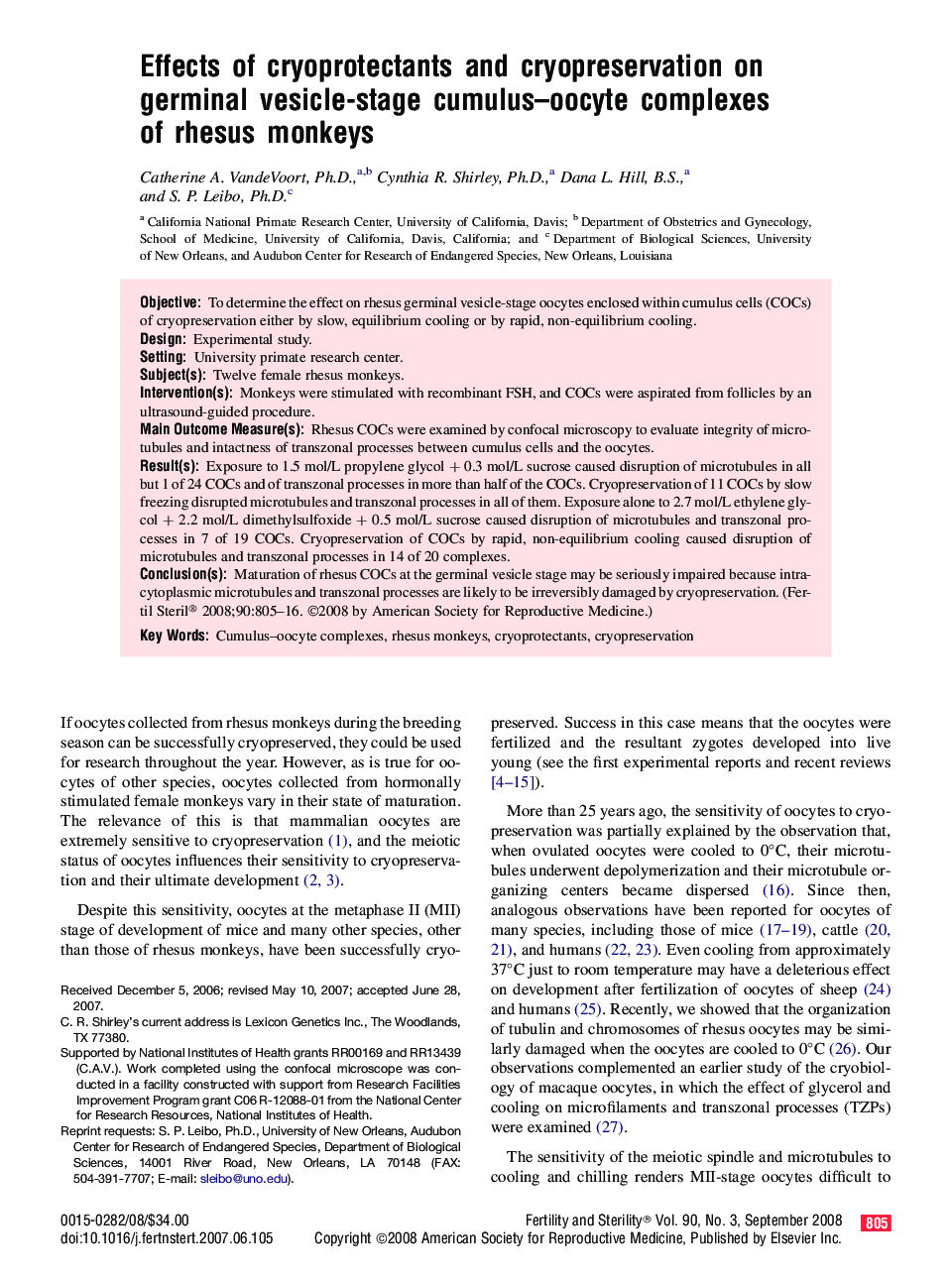| Article ID | Journal | Published Year | Pages | File Type |
|---|---|---|---|---|
| 3939844 | Fertility and Sterility | 2008 | 12 Pages |
ObjectiveTo determine the effect on rhesus germinal vesicle-stage oocytes enclosed within cumulus cells (COCs) of cryopreservation either by slow, equilibrium cooling or by rapid, non-equilibrium cooling.DesignExperimental study.SettingUniversity primate research center.Subject(s)Twelve female rhesus monkeys.Intervention(s)Monkeys were stimulated with recombinant FSH, and COCs were aspirated from follicles by an ultrasound-guided procedure.Main Outcome Measure(s)Rhesus COCs were examined by confocal microscopy to evaluate integrity of microtubules and intactness of transzonal processes between cumulus cells and the oocytes.Result(s)Exposure to 1.5 mol/L propylene glycol + 0.3 mol/L sucrose caused disruption of microtubules in all but 1 of 24 COCs and of transzonal processes in more than half of the COCs. Cryopreservation of 11 COCs by slow freezing disrupted microtubules and transzonal processes in all of them. Exposure alone to 2.7 mol/L ethylene glycol + 2.2 mol/L dimethylsulfoxide + 0.5 mol/L sucrose caused disruption of microtubules and transzonal processes in 7 of 19 COCs. Cryopreservation of COCs by rapid, non-equilibrium cooling caused disruption of microtubules and transzonal processes in 14 of 20 complexes.Conclusion(s)Maturation of rhesus COCs at the germinal vesicle stage may be seriously impaired because intracytoplasmic microtubules and transzonal processes are likely to be irreversibly damaged by cryopreservation.
